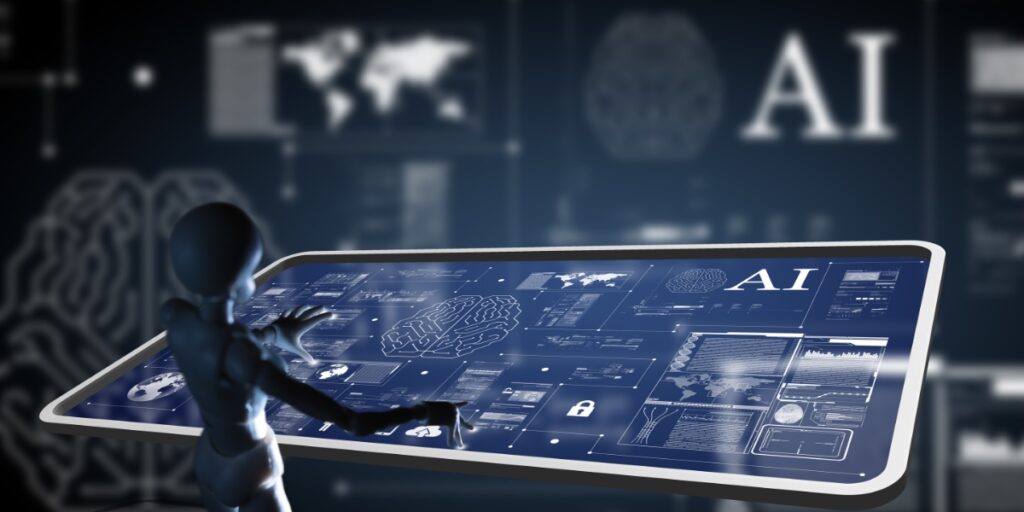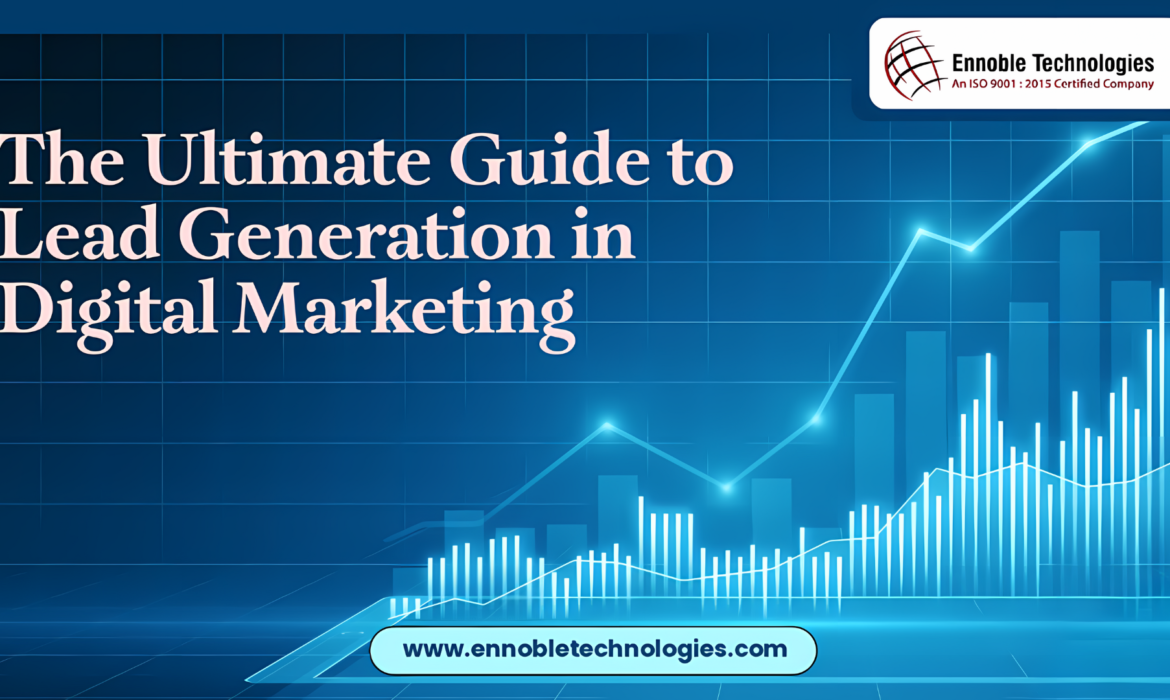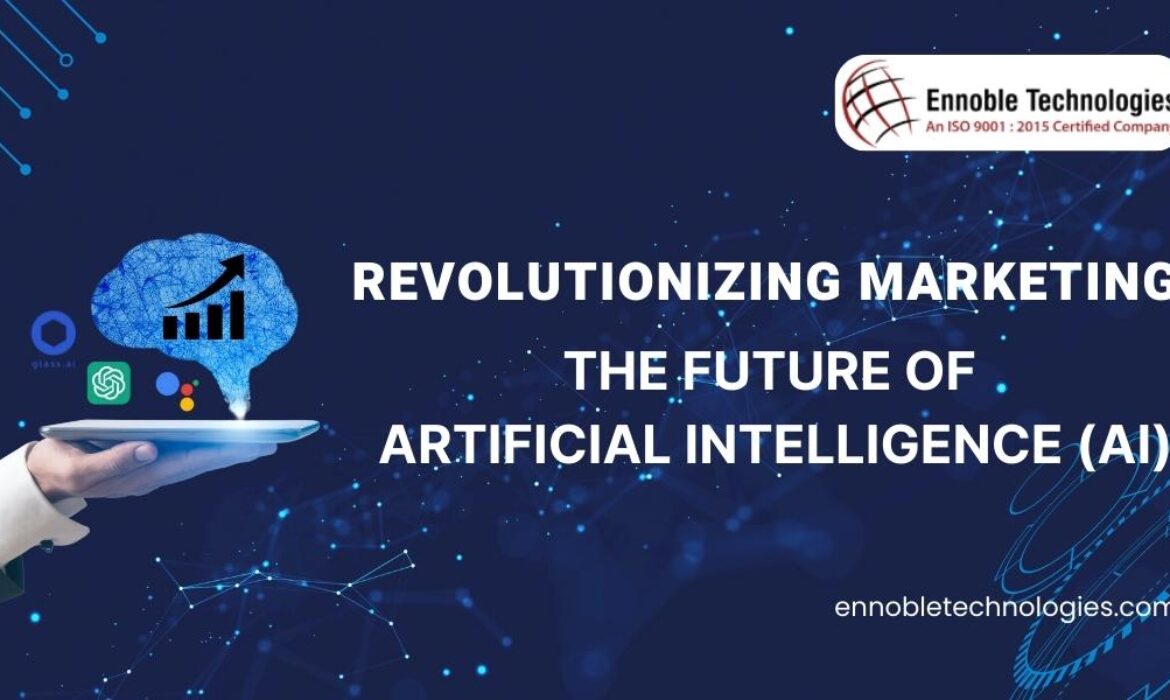The Ultimate Guide to Lead Generation in Digital Marketing
In today’s digital landscape, lead generation in digital marketing stands as a fundamental pillar of any successful marketing strategy. At Ennoble Technologies, we understand the importance of attracting and converting prospects into potential customers interested in your products or services. In this comprehensive guide, we delve into the strategies, tools, and best practices that drive effective lead generation in digital marketing.
Understanding Lead Generation
Lead generation in digital marketing marks the initiation of consumer interest or inquiry into products or services of a business. The ultimate goal is to nurture these leads through the sales funnel until they are ready to make a purchase decision. In digital marketing, lead generation is achieved through various channels and tactics, each tailored to engage and capture the attention of your target audience.
Key Strategies for Lead Generation
- Content Marketing: High-quality content remains the cornerstone of lead generation in digital marketing efforts. Content such as blogs, ebooks, whitepapers, and videos that address pain points and provide solutions helps attract and engage potential leads.
- Search Engine Optimization (SEO): Optimizing your website and content for search engines not only improves visibility but also drives organic traffic that can convert into leads. At Ennoble Technologies, we specialize in targeting relevant keywords and optimizing landing pages to maximize lead generation in digital marketing.
- Social Media Marketing: Leveraging platforms like Facebook, Instagram, LinkedIn, and Twitter allows businesses to engage directly with their audience, share valuable content, and capture leads through targeted advertising and organic interactions.
- Email Marketing: Despite being one of the oldest digital marketing techniques, email remains highly effective for lead nurturing. Ennoble Technologies designs personalized email campaigns that provide value and build trust, converting leads into loyal customers.
- Pay-Per-Click (PPC) Advertising: Paid search and display ads on platforms like Google Ads and social media channels can quickly generate leads by targeting specific demographics, interests, and behaviors of potential customers.
Tools for Lead Generation
- Lead Magnets: At Ennoble Technologies, we create compelling lead magnets such as ebooks, templates, free trials, and exclusive content to attract and capture potential leads.
- CRM Software: Our customized CRM solutions help businesses manage and track leads throughout the sales process, ensuring timely follow-ups and personalized communication.
- Marketing Automation: Ennoble Technologies implements automation platforms that streamline lead nurturing workflows, send automated emails, segment leads based on behavior, and score leads for optimal engagement.
- Analytics and Reporting: We utilize tools like Google Analytics to provide insights into website traffic, conversion rates, and lead generation in digital marketing metrics, enabling businesses to optimize their strategies for better results.
Best Practices for Effective Lead Generation
- Define Target Audience: At Ennoble Technologies, we conduct in-depth research to understand your ideal customer profile (ICP) and tailor lead generation strategies that address their specific needs and pain points.
- Create Compelling Offers: We develop irresistible offers that provide genuine value to your audience, encouraging them to willingly share their contact information and engage with your brand.
- Optimize Landing Pages: Our team designs clear and concise landing pages that align with your offers and compel visitors to take action, whether it’s signing up for a newsletter or downloading a resource.
- A/B Testing: Ennoble Technologies continuously tests different elements of lead generation in digital marketing campaigns, including headlines, images, CTAs, and forms, to optimize conversion rates and improve ROI.
- Lead Segmentation: We segment leads based on demographics, behavior, and engagement levels to deliver personalized content and offers that resonate with their interests, maximizing conversion opportunities.
Measuring Success
Effective lead generation in digital marketing is not just about quantity but also about quality. Key metrics Ennoble Technologies tracks include:
- Conversion Rate: The percentage of visitors who complete a desired action, such as filling out a form or downloading a resource.
- Cost per Lead (CPL): The amount spent on acquiring each lead through marketing efforts.
- Return on Investment (ROI): The revenue generated from leads compared to the cost of acquiring those leads.
Conclusion
Lead generation in digital marketing requires a strategic approach that combines compelling content, targeted outreach, and continuous optimization. By partnering with Ennoble Technologies, businesses can effectively attract, engage, and convert leads into loyal customers. Embrace innovation, monitor performance metrics, and adapt your strategies to stay ahead in the competitive digital landscape. Implement these strategies consistently and watch your lead generation in digital marketing efforts transform into sustainable business growth with Ennoble Technologies by your side.
Revolutionizing Marketing: The Future of Artificial Intelligence (AI)
With the rise of digital marketing, businesses are always on the lookout for a competitive edge. In recent years, Artificial Intelligence (AI) has emerged as a game-changing technology that is revolutionizing the world of marketing. AI can analyze customer data in real-time and provide insights into consumer behavior, preferences, and patterns. It can even assist in the creation and optimization of personalized marketing campaigns.
As AI continues to evolve and advance, it is predicted to become an integral part of the marketing landscape. Marketing professionals who embrace this technology early on will have a significant advantage over their competitors. In this blog, we will explore the future of AI in marketing and its potential impact on the industry.
Understanding Artificial Intelligence (AI)

Artificial Intelligence (AI) is a term used to describe the ability of machines or algorithms to carry out tasks that typically require human intelligence. This involves the ability to learn, reason, and solve problems. AI systems use a variety of techniques including machine learning, deep learning, and natural language processing to understand and interpret data.
At its core, AI relies on vast amounts of data to generate insights and make predictions. This data can come from a variety of sources such as customer interactions, social media activity, website traffic, and more. AI systems then use this data to learn and improve over time, becoming more accurate and effective at predicting customer behavior and preferences.
One of the most significant advantages of AI is its ability to process and analyze vast amounts of data in real-time. This means that businesses can use AI to create personalized marketing campaigns that are tailored to individual customers, providing a more engaging and personalized experience. Additionally, AI can help marketers to identify new opportunities and target new audiences, enabling them to stay ahead of the competition.
As AI continues to evolve and become more sophisticated, we can expect to see even more exciting applications in marketing. For example, AI could be used to create chatbots that can provide instant customer support, or to identify potential new markets for businesses to explore. Ultimately, the future of AI in marketing looks bright, and businesses that embrace this technology will be well-positioned to thrive in the years ahead.
The union of Artificial Intelligence and Marketing

The integration of Artificial Intelligence (AI) and marketing is no longer a distant future, but a reality that is already transforming the industry. The union of AI and marketing promises to revolutionize the way businesses communicate with their customers and improve the overall customer experience. Here are some of the ways in which AI is changing the face of marketing:
- Predictive Analytics – AI systems enable businesses to analyze large amounts of data about customer behavior and preferences, allowing them to predict future trends and identify potential new markets. This information can then be used to tailor marketing campaigns that are highly relevant to individual customers.
- Personalization – AI allows marketers to create more personalized experiences for customers by analyzing data about their browsing and purchasing behavior. This data can be used to create tailored content and messaging that speaks directly to the individual customer.
- Chatbots – AI-powered chatbots can provide instant customer support, answering questions and providing solutions to common problems around the clock. This not only improves the customer experience but also frees up resources that can be used elsewhere in the business.
- Content Creation – AI algorithms can be used to create highly engaging content, from blog articles to social media posts. This allows businesses to produce a large volume of quality content efficiently and cost-effectively
- Marketing Automation – AI-powered marketing automation tools can streamline many marketing processes, improving efficiency, and reducing costs. For example, AI can be used to automate email campaigns, social media posts, and even advertising campaigns.
As AI technology continues to evolve, we can expect to see even more exciting applications in marketing. Ultimately, the union of AI and marketing promises to create a more personalized and seamless customer experience that will benefit both businesses and their customers. Businesses that invest in AI-powered marketing tools will be well-positioned to stay ahead of the competition and thrive in the years ahead.
Benefits of using Artificial Intelligence in marketing

Artificial Intelligence (AI) is revolutionizing marketing and opening doors to new opportunities. Here are four benefits of using AI in marketing:
- Increased Efficiency – AI-powered marketing tools can automate repetitive tasks, freeing up time for marketers to focus on creativity and strategy. This can lead to increased efficiency, improved productivity, and cost savings.
- Data-Driven Decision Making – AI can analyze customer data to provide valuable insights into behaviors, preferences, and trends. This information can inform marketing strategies and campaigns, leading to more targeted and effective communication.
- Improved Customer Experience – By utilizing AI-powered chatbots and personalization, businesses can provide a more seamless and personalized customer experience. This can lead to increased customer satisfaction, loyalty, and retention.
- Competitive Advantage – Businesses that embrace AI in marketing will have a competitive advantage over those that do not. By staying ahead of the curve and utilizing the latest technology, businesses can stand out in a crowded market and attract more customers.
Overall, AI has the potential to revolutionize marketing and provide businesses with a valuable edge. As the technology continues to evolve, we can expect to see even more exciting applications in the marketing realm. By utilizing AI-powered tools and strategies, businesses can stay relevant and competitive in the years ahead.
Current use cases for AI in marketing

AI is being used in a variety of ways within the marketing sector, with innovative companies exploring the technology to gain a competitive edge. Here are five examples of current use cases for AI in marketing:
- Personalized Marketing – AI allows businesses to tailor their marketing efforts to individual customers. By analyzing customer data, marketers can create personalized promotions and product recommendations, leading to higher engagement and conversion rates.
- Predictive Analytics – AI can forecast future trends by analyzing past data. By understanding customer behavior patterns, marketers can predict which products and promotions will be successful and plan accordingly.
- Chatbots – AI-powered chatbots offer a 24/7 customer service experience. They can quickly and efficiently answer customer inquiries, qualify leads and even provide personalized product recommendations.
- Content Creation – AI can assist in content creation by generating headlines, captions, and even articles. This can increase productivity and streamline the content creation process.
- Programmatic Advertising – AI-powered programmatic advertising can automatically adjust campaigns based on performance, ensuring ads are shown to the right people at the right time on the most effective channels.
These use cases are just a few examples of how AI is revolutionizing marketing. As technology continues to evolve, we can expect to see even more innovative applications of AI in the marketing industry. Embracing AI can help businesses gain a competitive advantage and improve their marketing strategies in the years ahead.
The future of AI in marketing

The rapid growth of artificial intelligence (AI) technology is transforming the marketing industry. AI has the potential to revolutionize marketing by providing innovative solutions to businesses for better engagement with their customers. Here are six predictions for the future of AI in marketing:
- Even More Personalization – With the increasing amount of data available, AI will enhance personalization to the level where ads and product recommendations will be tailored specifically to each individual customer.
- AI-powered Virtual Assistants – AI-powered virtual assistants can help companies with customer service by providing immediate solutions to customer issues, as well as assistance in purchasing decisions.
- Voice Search Optimization – AI-driven voice search is the future of search. With voice search optimization, brands can develop voice-activated content, which will help them reach their customers in new ways.
- Image Recognition for Advertising – AI-powered image recognition technology will help businesses automatically categorize images based on products, locations, and patterns. This will also enable them to display targeted ads to customers.
- Better Data Analysis – AI can analyze vast amounts of data much more efficiently than humans. In the future, AI will be more successful in finding meaningful and impactful correlations and trends.
- Increased Automation – AI-driven automation will help businesses automate many time-consuming marketing tasks such as social media posting, email marketing, and lead scoring. This will allow marketers to focus on other significant tasks, including customer engagement.
As AI technology continues to evolve, businesses can expect to see significant advancements in marketing techniques and strategies. With its powerful analytical abilities, AI has the potential to transform the way marketing campaigns are planned and executed in the future.
Potential implications and ethical considerations

As with any emerging technology, artificial intelligence (AI) in marketing comes with potential implications and ethical considerations. Here are seven implications and considerations to be aware of:
- Bias – AI algorithms can perpetuate bias based on data used to train them. Marketers need to ensure any data they use is not biased or incomplete, and ensure AI is programmed with ethical guidelines.
- Privacy – As AI collects more data, potential privacy concerns continue to arise. Marketers must be transparent about data collection practices and ensure consumers can opt-out.
- Job Loss – Automation with AI could lead to job loss. Organizations must consider the impact on their staff and collaborate with them to find new roles.
- Data Security – As organizations collect more data, they must ensure they are secure from cyber-attacks. Hackers could use the data to create fake personas and purchase goods and services on behalf of unsuspecting people.
- Accountability – As AI takes over decision-making processes, accountability needs to be defined. Who will take responsibility for decisions made by AI algorithms?
- Over-reliance – AI in marketing could lead to over-reliance on algorithms and automation. Marketers still need to think critically and creatively to create effective campaigns.
- Customer Trust – As AI technology becomes more integrated into the marketing industry, organizations must gain customer trust by being transparent about their data practices and by being mindful of privacy concerns.
As AI continues to change the face of marketing, organizations must be aware of the potential implications and ethical considerations to ensure they make the most of this powerful technology while also remaining responsible and ethical.
Conclusion
In conclusion, the future of artificial intelligence in marketing is promising. As AI technology continues to revolutionize the industry, marketing professionals must be aware of the numerous implications and ethical considerations that come with it. Ensuring that AI is unbiased, privacy is protected, job loss is minimized, data security is maintained, accountability is defined, critical thinking is still present, customer trust is gained, and ethics are maintained is imperative. By doing so, companies can take advantage of the power of AI while ensuring that they remain responsible and ethical in their marketing practices. As the world becomes increasingly digitized, AI is sure to play an even more significant role in the way marketing is conducted. By embracing this powerful tool while remaining mindful of ethical considerations, organizations have the potential to dominate the marketing landscape far into the future.
Stay tuned to our space for more interesting topics of discussion.
Also Read: Mobile Friendliness – Your Key to Connecting with Users on the Go | Ennoble Technologies





